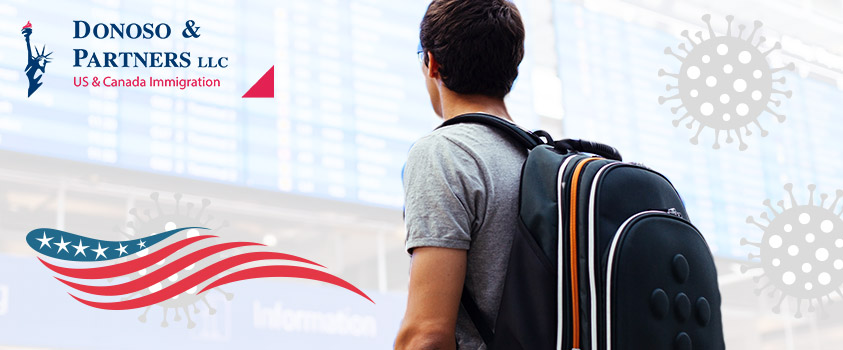Washington, D.C., February 12, 2021: The U.S. Department of State published a new policy effective February 10, 2021, that again exempts F-1 and M-1 students on student visas traveling from the Schengen Area, the UK, and Ireland from travel restrictions to the United States.
14-Day Travel Restriction
During the COVID-19 pandemic, the U.S. government has adopted a 14-day waiting period for persons from many countries seeking to enter the United States. Such travel restrictions have applied to European countries such as the UK, Ireland as well as Schengen Area countries in continental Europe. These restrictions have also applied to Brazil, China, South Africa and India. Exceptions may apply to U.S. citizens, lawful permanent residents, and others.
Since the 14-day travel restriction bars admission from a direct flight from impacted countries, the rule’s potential impact extends to connecting flights and layovers through Schengen Area countries or London, to name a few. It has been important to check with your airline before boarding.
Generally, the two solutions for the 14-day travel restriction have been either to seek a national interest exception before a U.S. Consulate before traveling, or to spend 14-days in a country that is not impacted by the travel restriction, such as Canada, Mexico or Turkey.
F-1 Students from Brazil, China, Iran, and South Africa
The 14-day travel restriction applies to F-1 and M-1 from Brazil, China, Iran, and South Africa (see Presidential Proclamation of January 26, 2021). F-1 and M-1 students may not fly directly to the U.S. from any of these countries without first obtaining a national interest exception or spending 14-days outside of those countries before seeking to fly to the U.S.
F-1 Students from the Schengen Area, the U.K., and Ireland
Effective February 10, 2021, the U.S. government confirmed that F-1 and M-1 visa holders from the Schengen Area, the U.K. and Ireland are exempt from the 14-day travel restrictions. In the past year, F-1 students have at times enjoyed such exemption. The new policy statement from the U.S. Department of State confirms that the exemption applies henceforth to F-1 and M-1 students from these countries. Such F-1 and M-1 students do not need to apply to a U.S. Consulate for a national interest exception. Additionally, the new policy confirms that the exemption applies to new F-1 and M-1 visa applicants. F-1 and M-1 visa applicants who are found by the U.S. Consulate to be otherwise qualified for an F-1 or M-1 visa will automatically be considered for a national interest exception to travel.
COVID19 Test Required
Starting on January 12 2021, the U.S. government has required passengers to present a negative COVID-19 test conducted within 3-days of the departing flight before boarding.
National Interest Exceptions
Business travelers, investors, academics, J-1 students, journalists, treaty traders and ESTA visitors remain subject to the 14-day travel restriction. Executives and similar high-level or essential personnel are frequently considered by U.S. Consulates to qualify for a national interest exception.
Indeed, Donoso & Partners had experienced success in obtaining national interest exceptions during the COVID19 pandemic for travel to the United States from the Schengen area, UK, and Ireland for persons in executive or essential skills roles in the U.S.
Donoso & Partners, a leading immigration law firm based in Washington, D.C., will continue to report on developments regarding the immigration law and policy through our news section of donosolaw.com.
SCHEDULE A CONSULTATION TODAY.
Donoso & Partners, LLC provide assistance with review and advice regarding eligibility for visas to the U.S. or Canada.
